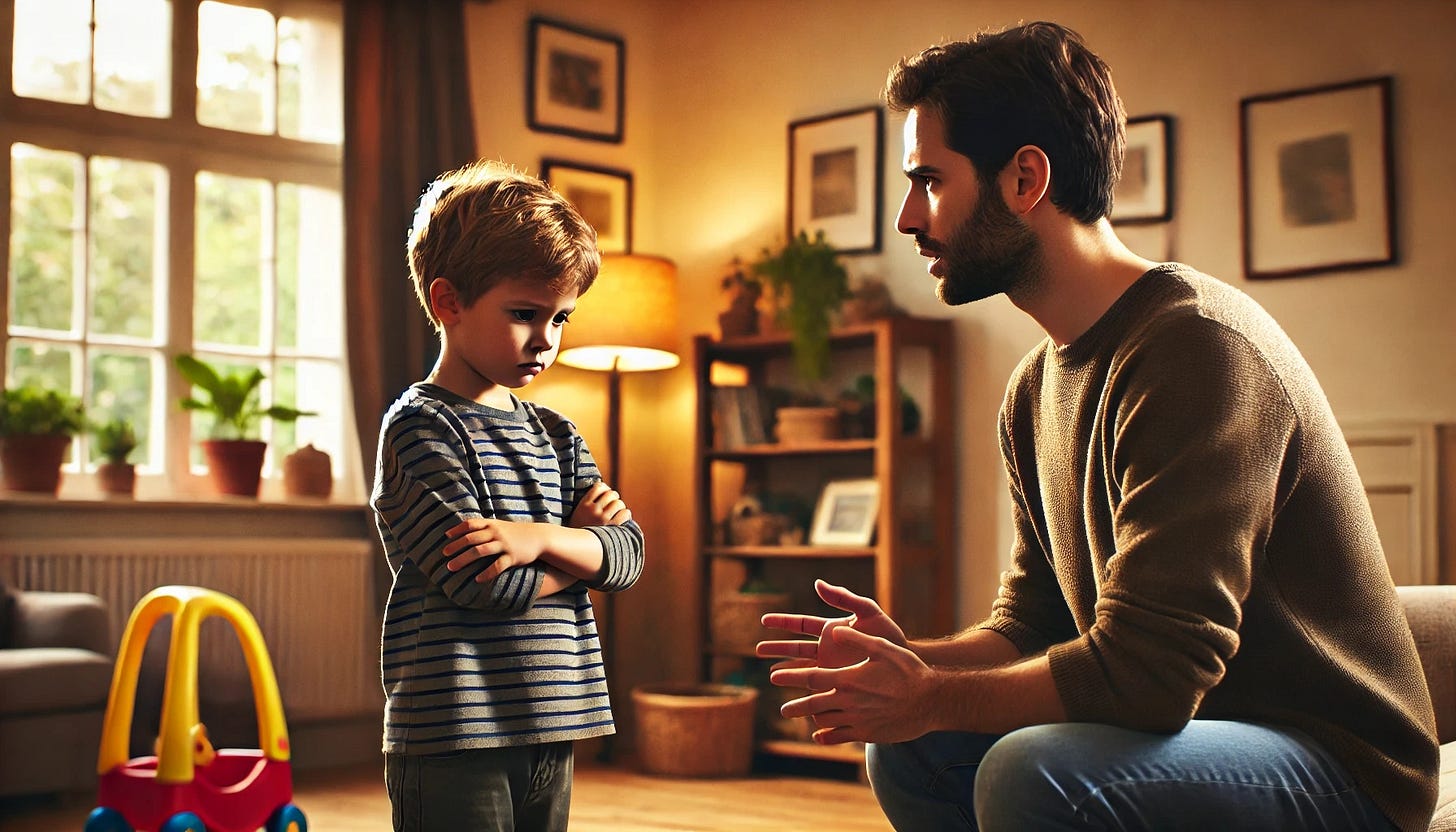Becoming “Good” at the Cost of Being Whole
How loving discipline shaped a lifetime of self-doubt and disconnection
We’ve all heard them. Many of us have said them.
“You should know better.”
“Act your age.”
“What would people think?”
“Mind your manners.”
“Respect your elders.”
These phrases are sprinkled throughout childhood like little pebbles in a garden path—meant to guide, shape, and civilize young humans. And truly, they often come from love. We say them because we want kids to be kind, respectful, aware of others, and successful in the world.
But here's the question we don’t often ask:
What else are we teaching when we say these things?
Because woven into these well-meaning messages is a powerful, subtle lesson:
“Who you are isn’t quite right—please adjust for the audience.”
Oof. That one stings a little, doesn’t it?
The Cultural Curriculum of “Outside-In”
We don’t mean to do it, but many of our cultural teachings train kids to measure themselves from the outside in. They learn:
That their worth is conditional.
That their feelings are less important than the vibe in the room.
That being “good” means getting it right in other people’s eyes.
That they should perform who they are, instead of just being it.
We think we’re teaching good values. And often, we are. Respect, kindness, awareness, empathy—these are beautiful human qualities.
But here’s where it gets cloudy:
When those qualities are taught through the lens of external approval, we unintentionally disconnect kids from their inner knowing.
They start watching the room instead of listening to their hearts.
They start scanning for judgment instead of sensing for wisdom.
They start managing their feelings instead of understanding them.
And Then We Grow Up…
Fast forward twenty years and what do we find?
A whole lot of grown-ups who are anxious, self-doubting, overly accommodating, or constantly trying to “get it right.”
Adults who’ve lost touch with their natural confidence, clarity, and sense of self—because it was slowly replaced by a performance.
Not out of malice.
Not because anyone “failed” at parenting.
But simply because we’ve been living in a culture that misunderstands where our feelings and well-being come from.
A Different Way: From the Inside-Out
The truth is this: every child (and every adult) already has everything they need within them—clarity, compassion, creativity, and wisdom. These aren’t skills we install through the right discipline or moral lectures. They’re innate.
When we start from the inside-out understanding, we begin to see:
That kids don’t need to earn their value—it’s already intact.
That emotions aren’t dangerous—they’re just passing weather from the thought-storm.
That “bad behavior” is often a signal of disconnection from their own well-being, not moral failure.
That respect and kindness grow naturally from a foundation of self-worth, not fear of disapproval.
We stop trying to control our kids into being good, and instead, we guide them back to the goodness they already are.
So What Do We Say Instead?
This isn’t about finding a perfect script or banning certain phrases—it’s about seeing clearly. When we see that well-being lives within, our words shift naturally.
We might say:
“That didn’t go well—how are you feeling right now?”
“Something’s up for you, huh? I’m here.”
“You’re not in trouble—I just want to understand what was going on inside.”
“It’s okay to feel that way. You’re still loved.”
These aren’t magical words. They’re simply the voice of someone who trusts the inner wisdom of the child in front of them.
And maybe most importantly… they’re the voice we can start using with ourselves.
The Real Lesson
Our kids don’t need to be shaped into someone better.
They need to be reminded, again and again, of who they already are.
And maybe—just maybe—we do too.
Author’s Note: I distinctly remember hearing, “You should be ashamed of yourself,” as a child. I don’t recall what I did—but I’ll never forget the wave of disapproval that washed over me. It was like a heavy curtain dropped between me and the people I loved. I felt exposed, judged, and deeply wrong... without even fully understanding why.
That moment etched something into me. Not the details of the event, but the lasting imprint that being “bad” meant losing connection, approval, maybe even love.
Now, I can see it differently. That wasn’t proof that I was broken—it was a moment of misunderstanding. My feelings came from the meaning my young mind made of those words… not from the truth of who I was.
We’ve all had moments like this. And we’ve all done our best—with the understanding we had at the time.
Want to explore more ways we’ve been conditioned to look outside ourselves (and how to gently come home)? Hit reply or share your story—I’d love to hear from you.



